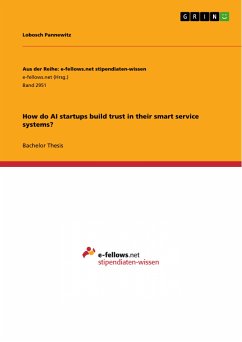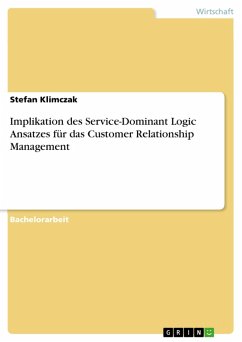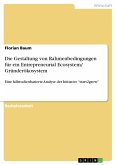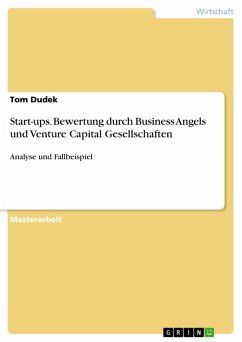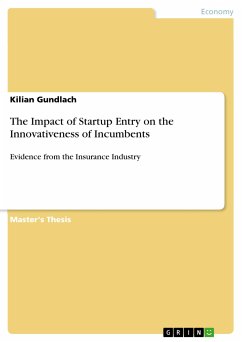Bachelor Thesis from the year 2017 in the subject Business economics - Company formation, Business Plans, grade: 1,3, Free University of Berlin (Fachbereich Wirtschaftswissenschaft), course: Wirtschaftsinformatik, language: English, abstract: The global economy is shifting labor from agriculture and manufacturing to services. Globe-spanning service-based business models enabled by information technology (IT) and increas-ingly specialized businesses and professions have transformed our economies. Service innova-tion is key in order to achieve growth for this more-service-focused-than-ever world economy to thrive. Scholars recognize a need for new ways of value-creation that can propel economic growth and the development of more effective services (Vargo, Maglio, & Akaka, 2008). One answer to respond to that need is the re-organization of the production of services in so-called service systems. This approach is particularly useful for knowledge-intensive industries and noticeable for example in the artificial intelligence (AI) industry, a rapidly evolving, hy-per-innovative ecosystem with new players coming up at frequent intervals. AI startups offer their services through smart service systems or they try to make their customer's and their own service systems smarter by adding AI services to the process of value co-creation. The industry heavily relies on software as a service (SaaS) business models which represent the ideal-typical shift to a service-dominant (S-D) logic thinking. When it comes to the acceptance of those new services, trust is a vital concern. While it has always been an important issue in services, trust in smart service systems becomes crucial. As AI startups' service propositions are far from familiar to their potential clients, they have got to go the extra mile to build trust in their smart service systems. This paper will provide answers to the research question How do AI startups build trust in their smart service systems? by applying the theory of trust to smart service systems and AI startups. As website quality is an important trust-building lever the research question will be answered by exploring trust building measures in a sample of 26 AI startups' websites. The major findings include that AI startups do not make their smart service systems as trans-parent as they could through their websites, that showcasing recognition by third parties oc-curs mostly through inexpensive tools that are easy to implement, and that all AI startups offer indirect channels to get in contact with them but less offer richer channels.
Dieser Download kann aus rechtlichen Gründen nur mit Rechnungsadresse in A, B, BG, CY, CZ, D, DK, EW, E, FIN, F, GR, HR, H, IRL, I, LT, L, LR, M, NL, PL, P, R, S, SLO, SK ausgeliefert werden.

